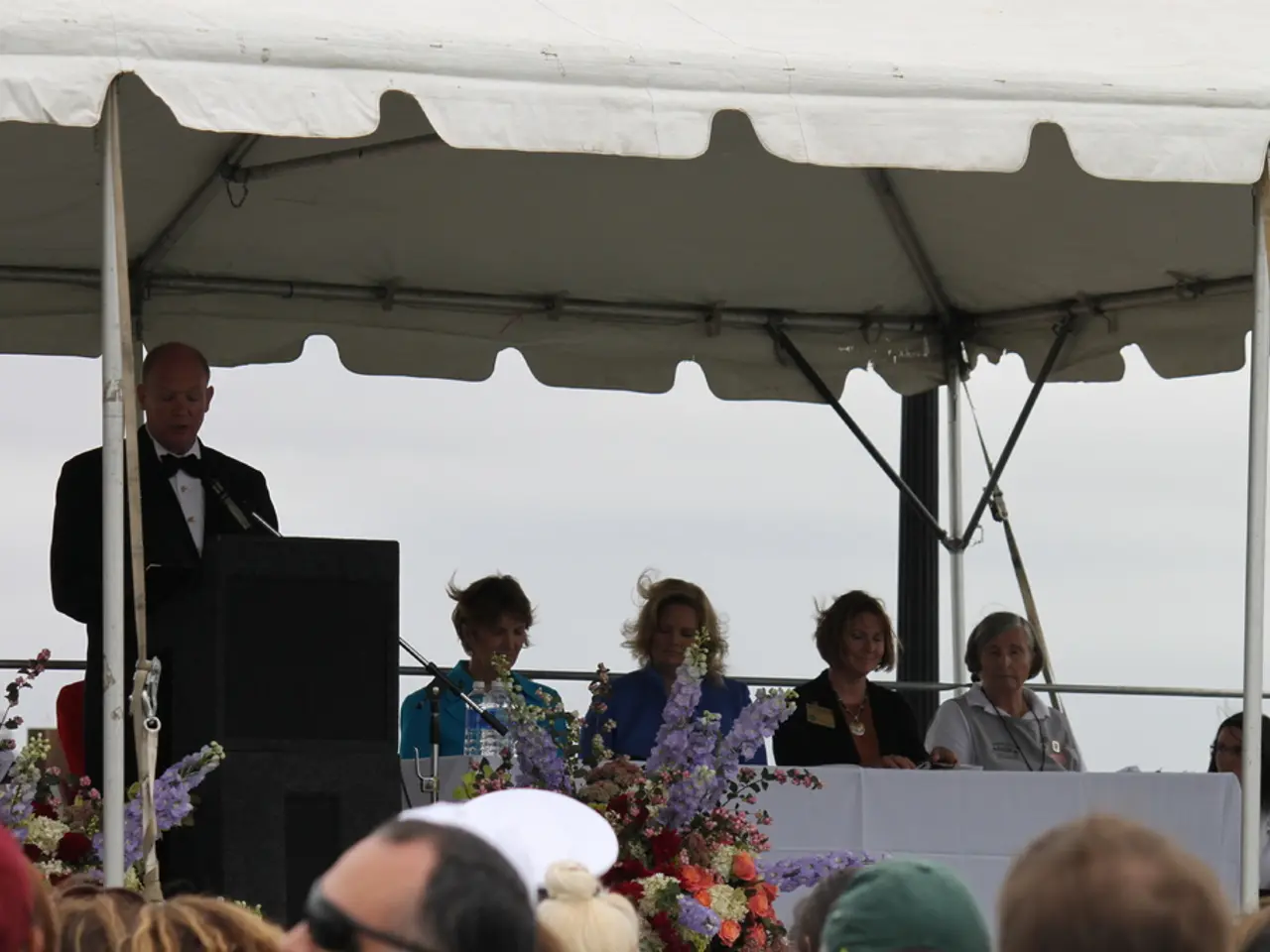Inquiries to the Wacken counselor number around 400 each year - Approximately 400 annual appeals to a Wacken-based pastor
Wacken Open Air: A Haven Amidst Global Uncertainty
The Wacken Open Air (W:O:A), a four-day metal festival held in Germany, has become a unique space for people to find solace amidst the turmoil of the modern world, according to Katharina Schunck, the 36-year-old leader of the festival's chaplaincy team.
Schunck, a regional youth pastor, has been involved with the W:O:A for 14 years. She has observed a shift in the conversations at the festival, with great uncertainty in the world being a common topic. This shift, she believes, can be attributed to the ongoing global crises such as the COVID-19 pandemic, the Russian invasion of Ukraine, and other geopolitical events.
One of the concerning trends Schunck has noticed is an increase in panic attacks among festival-goers seeking help. However, it's important to note that while there are no direct reports confirming this increase at the Wacken Open Air specifically, mental health struggles such as severe panic attacks have been reported in the metal community.
The chaplaincy team at the W:O:A provides various points of contact for festival-goers dealing with a range of issues. For 15 years, they have been offering help to those with worries, providing a safe space for longer and more in-depth conversations. This year, 30 counselors are on duty, ready to lend a listening ear.
A converted US school bus now serves as a second location on the open-air site, offering a quieter, more private space for those who need it. Despite this, Schunck acknowledges that privacy and quiet spaces can still be a challenge for festival-goers, given the constant noise and lack of retreat.
The W:O:A runs from Wednesday to Saturday, and Schunck notes changes in the needs of festival-goers over the years. She explains that while the topics of conversation have evolved to include more issues related to current crises, most conversations with festival-goers involve pre-existing problems or psychological burdens.
The chaplains at the W:O:A aim to help fans find their strength and make decisions to return to the festival feeling good and supported. They offer a form of brief intervention, not therapy, and their goal is to provide a sense of relief and guidance during the festive days.
In conclusion, the Wacken Open Air continues to be a unique space for metal fans, offering a sense of community and support amidst the challenges of the modern world. Despite the challenges, the chaplaincy team strives to create a safe and welcoming environment for all, providing a much-needed respite for festival-goers.
[1] Source: Article on sensory rooms at venues for neurodivergent fans
[2] Source: Article on mental health struggles in the metal community
- Expanding the services offered at Wacken Open Air, Schunck suggests incorporating vocational training programs, providing attendees with skills that could aid in their health-and-wellness and lifestyle while also offering an entertainment and music outlet, allowing them to thrive amidst the global uncertainty.
- In line with the increase in mental health issues, Schunck proposes a collaboration with science and health professionals to introduce workshops and talks dedicated to understanding and managing panic attacks and other health issues, integrating them into the festival's culture and community aid offerings.
- To maintain a sense of holistic well-being and further emphasize the festival's commitment to its community, Schunck suggests partnering with industry experts in the field of science, health-and-wellness, lifestyle, entertainment, and music to create a dedicated space for discussions, workshops, and performances, ensuring the Wacken Open Air remains a haven amidst ongoing global crises.




